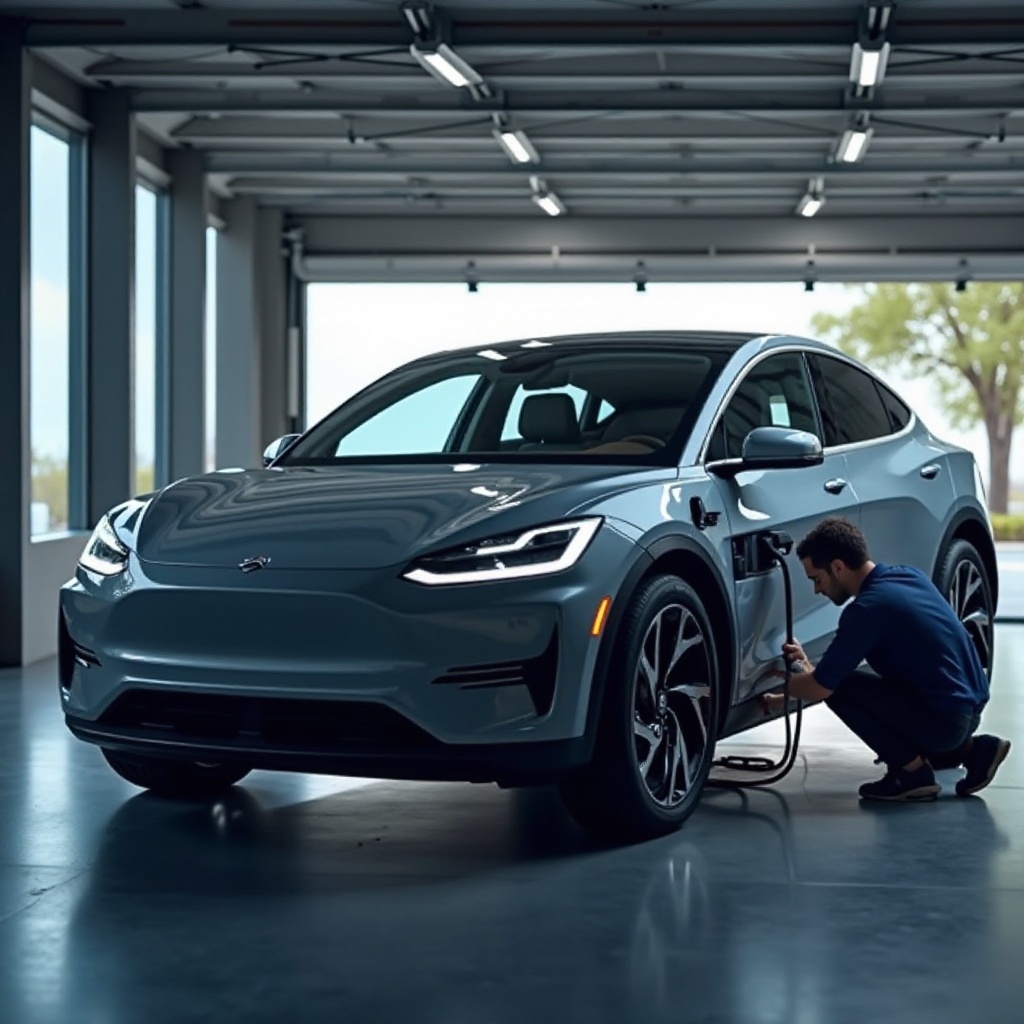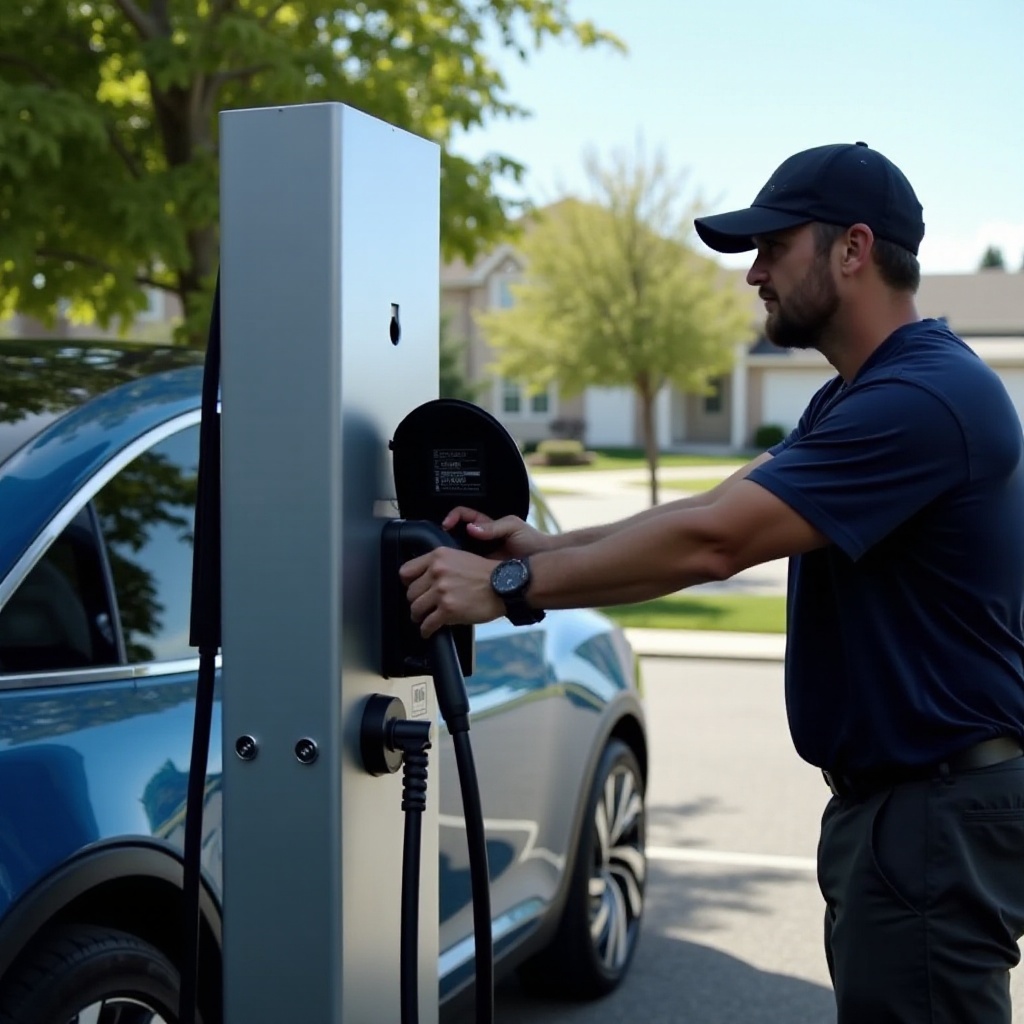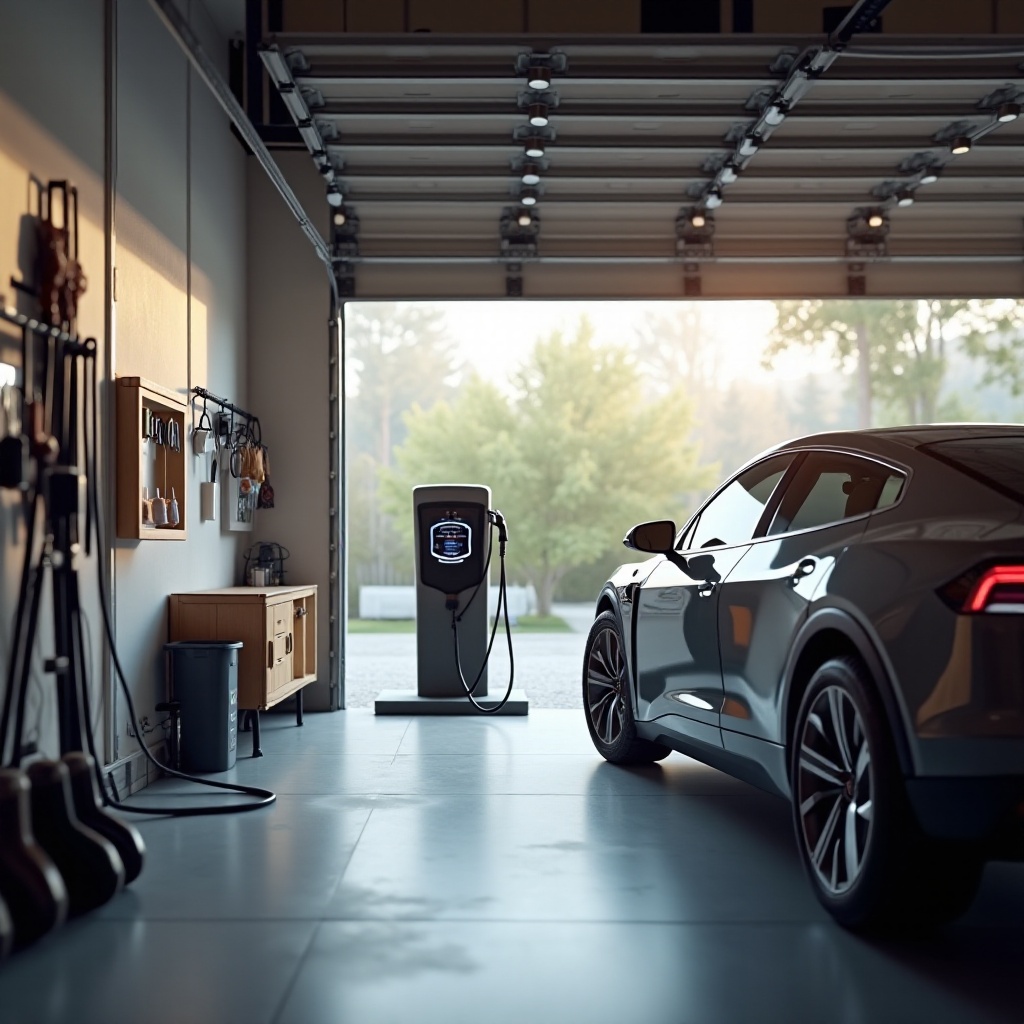Introduction
Electric vehicles are becoming increasingly popular, with Rivian leading the charge in delivering high-performance electric SUVs and trucks. To fully enjoy the benefits of owning a Rivian vehicle, setting up an efficient and reliable home charging system is essential. One crucial consideration for prospective and current Rivian owners is the installation cost of a Rivian charger. This guide delves into the intricacies of Rivian charger installation costs, providing a detailed analysis, exploring various factors influencing the price, explaining the installation process, and offering tips to minimize expenses.

Understanding Rivian Chargers
Rivian chargers are specifically designed to maximize the charging efficiency for Rivian electric vehicles (EVs). These chargers come in different types, including the Rivian Wall Charger and portable options. The Rivian Wall Charger is a common choice for home installation, offering higher power output and faster charging times compared to portable options. It delivers up to 11.5 kW of power, fully charging a Rivian vehicle in about 8 hours. Understanding the type of charger needed is the first step in evaluating installation costs.

Factors Influencing Rivian Charger Installation Costs
Several factors can affect the overall cost of installing a Rivian charger:
- Electrical System Assessment:
-
A professional electrician needs to assess your home’s electrical system to determine if any upgrades are necessary. Older homes may require extensive upgrades or new circuit installations, raising the overall cost.
-
Location and Accessibility:
-
The distance between the electrical panel and the desired charger location can impact installation costs. Longer wiring runs and difficult-to-reach areas may require additional labor and materials.
-
Permits and Inspections:
-
Many jurisdictions require permits and inspections for EV charger installations, adding to the cost. The process varies depending on local regulations.
-
Labor Costs:
-
Labor costs can differ significantly based on your location and the complexity of the installation. Hiring certified and experienced electricians ensures a safe and compliant setup.
-
Charger Model:
- While this guide is focused on Rivian chargers, the model you choose can also influence the installation price. The Rivian Wall Charger is more expensive than portable models but offers faster and more efficient charging.
Understanding these factors helps in better preparing for the potential expenses associated with installing a Rivian charger.
Detailed Cost Analysis
A detailed cost analysis includes a breakdown of various cost components involved in installing a Rivian charger:
- Electrical Upgrades:
-
Upgrading the electrical panel or wiring typically costs between $300 and $1,500, depending on the extent of the work.
-
Charger Purchase:
-
The Rivian Wall Charger itself is priced around $500 to $750.
-
Labor:
-
Hiring a certified electrician generally costs between $400 and $1,200 for the installation, depending primarily on regional rates and the complexity of the work.
-
Permits and Inspections:
-
Expect to pay $100 to $400 for necessary permits and inspections. These costs vary widely based on local municipal regulations.
-
Additional Materials:
- Mounting hardware, conduits, and other materials may add another $100 to $300 to the total cost.
By combining these costs, the typical Rivian charger installation ranges from $1,400 to $4,150. Knowing the detailed breakdown helps in budgeting accurately and avoiding unwelcome surprises during installation.

Installation Process of Rivian Chargers
When installing a Rivian charger, there are several key steps to be followed:
- Site Evaluation:
-
An electrician will assess your home’s electrical panel and the intended charger location. They will determine if any upgrades or modifications are needed.
-
Permit Acquisition:
-
Based on the evaluation, the necessary permits must be obtained from local authorities.
-
Electrical Upgrades:
-
If required, the electrician will upgrade the electrical panel or wiring to handle the charger’s power requirements.
-
Charger Installation:
-
The installer will mount the charger on your garage or exterior wall, connecting it to your home’s electrical system.
-
Inspection:
-
Local authorities will conduct final inspections to ensure the installation meets all codes and regulations.
-
Testing:
- Finally, the electrician will test the charger to ensure it functions correctly and efficiently.
Understanding these steps can help in supervising the installation process and ensuring everything is set up correctly.
Tips to Minimize Installation Costs
Minimizing the cost of installing a Rivian charger is possible with careful planning and informed choices:
- Choose the Right Location:
-
Select a location close to your electric panel to reduce wiring costs. This location should also be easily accessible for regular use.
-
Opt for Group Installations:
-
If others in your neighborhood or community are also interested in installing EV chargers, consider group installations to share the cost of permits and labor.
-
Leverage Incentives:
-
Take advantage of any available local, state, or federal rebates and incentives for EV charger installations. These can significantly offset the costs.
-
Regular Maintenance:
-
Regularly maintaining your home’s electrical system can prevent costly upgrades and ensure your installation goes smoothly.
-
DIY Preparation:
- While the actual installation should be done by professionals, doing preliminary tasks like clearing the installation area can save labor time.
Employing these tips can help significantly reduce the overall installation costs and make the process more affordable.
Conclusion
Installing a Rivian charger at home is an essential step toward maximizing the convenience and benefits of owning a Rivian electric vehicle. Although the installation costs can vary depending on several factors, understanding these elements and careful planning can help manage the expenses effectively. Make sure to follow our detailed guide and tips to streamline the installation process and enjoy efficient home charging.
Frequently Asked Questions
What is the average cost of installing a Rivian charger?
The average cost ranges from $1,400 to $4,150, depending on electrical system requirements, permits, labor, and other factors.
Can I install a Rivian charger myself?
While possible, it’s recommended to hire a professional electrician to ensure a safe, compliant, and reliable installation.
Are there any rebates or incentives for installing a Rivian charger?
Yes, various local, state, and federal incentives and rebates can help offset installation costs. Checking with local authorities and utility companies is advisable.
